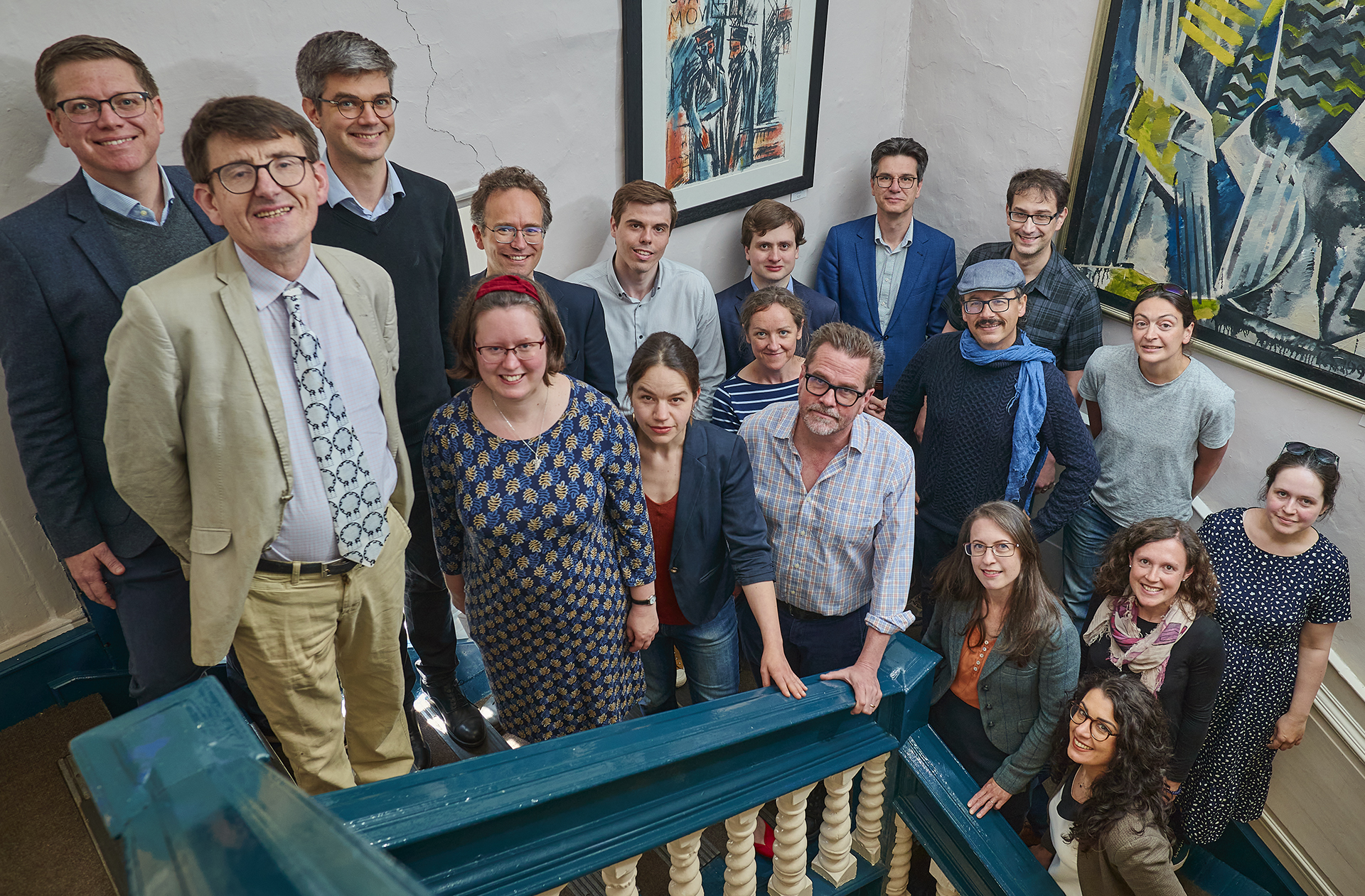Ancient Philosophy
Aristotle Beyond the Academy
PI: Prof. Edith Hall
This project focusses on the three areas of ethics, law and politics, rhetoric, and natural science. This ancient Greek intellectual titan’s authority has been omnipresent and vigorously contested. He has been both used to reinforce established authority and adopted by radicals and progressives.
Aristotle's Good Life and European Identities
PI: Dr Giulia Bonsai
Dr Bonasio has also been awarded also a Senior Fellowship at the Collegium Helveticum where she organised a workshop on "Wisdom: what is it? What is its use (if any)?" with experts from different fields (ancient philosophy, Buddhist philosophy, Indian philosophy, Islamic philosophy, wisdom literature, neuroscience and biology). Dr Bonasio is currently preparing a volume that collects the papers presented in the workshop and that will be published by De Gruyter.
Aristoteles Pezographos: The Writing Styles of Aristotle and their Contribution to the Evolution of Ancient Greek Prose
Co-PIs: Prof. Edith Hall and Prof. Phillip Horky
The team, which includes an advisory committee of experts on Aristotle and on Greek prose stylistics from around the world, will read and determine the prose stylistics of all the major texts of Aristotle and the Aristotelian Corpus, as well as ascertain the influence of Aristotle’s styles on later philosophers and scientists, like Aspasius, Galen, and John Philoponus, over a 5-year period (from September 2023 until September 2028).
The Philosophy of Democracy in Antiquity
PI: Prof. Phillip Horky
Part of his work included a workshop in Durham, under the aegis of the Durham Center for Ancient and Medieval Philosophy, devoted to examining democratic philosophy in the Hellenistic and post-Hellenistic periods.
Project Academy
Co-PI: Prof. Phillip Horky
Despite the historical importance of the Early Academy, the fragments of those philosophers who were its members are generally inaccessible: they have never been translated into English or German as a whole. We aim to resolve this issue by developing a team of scholars from the United Kingdom, Ireland, Germany, Italy, France, and Belgium, with the core leadership located in Durham and Tϋbingen.
Marcus Aurelius’ Meditations
PI: Dr Lucy Jackson
He writes and reflects on his failures, on how he might, or should, have acted, and on where he might begin tomorrow. Readers may not come to this Marcus Aurelius expecting such an awareness of his own imperfections and his struggle with anger especially. In embracing his self-awareness, we find the value of Meditations today. This Marcus Aurelius is a wise, flawed, and thoroughly human companion as we, with him, begin our journey towards a happier life once more.
Staff working in this research area
Learn more about our colleagues who work in the area of Classical Reception.
Dr Giulia Bonasio
Dr George Gazis
Dr Nathan Gilbert
Prof. Edith Hall
Prof. Philip Horky
Dr Lucy Jackson
Dr Sarah Miles
Prof. Alberto Rigolio
Justine Wolfenden
Transformative Classics
Classics at Durham explores the myriad cultures and contexts of the ancient Mediterranean world, from ancient Greek philosophy to Latin linguistics. We engage in collaborations across the humanities, sciences, and social sciences to develop innovative research methods and techniques.
Transformative Humanities
Discover the Faculty of Arts and Humanities' new Transformative Humanities framework which brings together distinctive approaches to humanities research and education within the academy and across a wide range of partners and communities.
Find out more
Publications
Read the latest books written and edited by colleagues in our department.
Meet our staff
Learn more about the work and research specialisms of our colleagues.
Postdoctoral research funding
Find out about fellowship and scholarship opportunities to undertake research at Durham.
Events and seminars
View our events calendar for the latest research seminars and workshops.


/prod01/prodbucket01/media/durham-university/departments-/classics-and-ancient-history/47302-3941X1553.jpg)






/prod01/prodbucket01/media/durham-university/departments-/classics-and-ancient-history/staff-images/bonasio.jpg)
/prod01/prodbucket01/media/durham-university/departments-/classics-and-ancient-history/staff-images/gazis.jpg)
/prod01/prodbucket01/media/durham-university/departments-/classics-and-ancient-history/staff-images/gilbert.jpg)
/prod01/prodbucket01/media/durham-university/departments-/classics-and-ancient-history/staff-images/hall.jpg)
/prod01/prodbucket01/media/durham-university/departments-/classics-and-ancient-history/staff-images/horkey.jpg)
/prod01/prodbucket01/media/durham-university/departments-/classics-and-ancient-history/staff-images/jackson.jpg)
/prod01/prodbucket01/media/durham-university/departments-/classics-and-ancient-history/staff-images/miles.jpg)
/prod01/prodbucket01/media/durham-university/departments-/classics-and-ancient-history/staff-images/rigolio.jpg)
/prod01/prodbucket01/media/durham-university/departments-/classics-and-ancient-history/staff-images/wolfenden.jpg)

/prod01/prodbucket01/media/durham-university/research-/research-institutes/institute-for-medical-humanities/books-2241631_1280.jpg)
/prod01/prodbucket01/media/durham-university/departments-/classics-and-ancient-history/Classics1611Jun-05-2023.jpg)


/prod01/prodbucket01/media/durham-university-business-school/Durham-Cathedral-drone-shot-.png)
/prod01/prodbucket01/media/durham-university/departments-/classics-and-ancient-history/59377.jpg)

